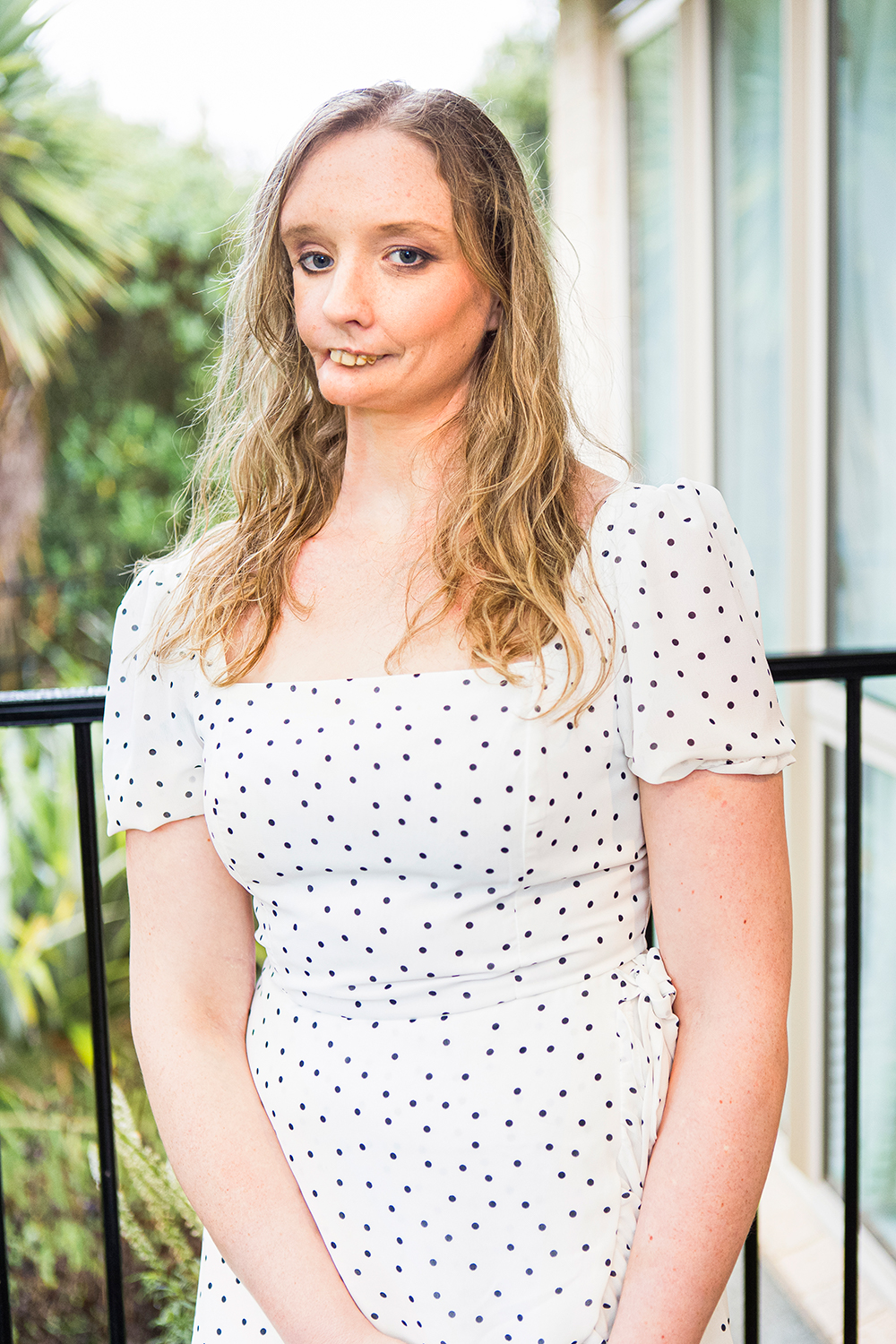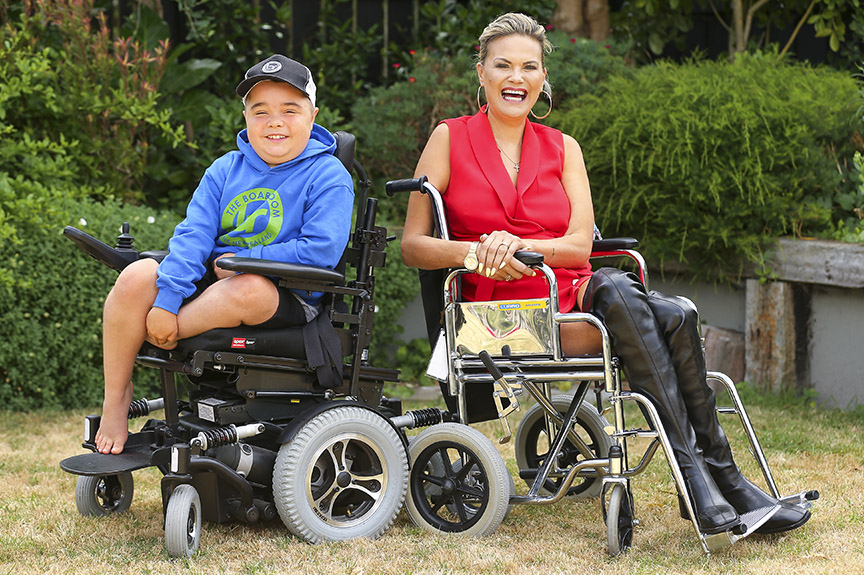By his own admission, Brad Smeele was living life to the fullest. The professional wakeboarder and part-time model trained hard and partied hard. Then, in July 2014, he fell hard during a mid-air backflip stunt and suddenly he was a quadriplegic, unable to move or feel anything from the neck down.
Brad was 27 and understandably consumed by what he had lost. Fortunately, the Aucklander had his Pilates teacher and kinesiologist practitioner Susie Turner to help him grieve.
“After the accident, she helped me peel the layers back, dig deep and explore things that I really didn’t want to, but needed to,” Brad, now 35, tells Woman’s Day. “She told me I’d be grateful for this journey and I laughed at her. But gratitude has come.”
Susie agrees, “Once he got over the fact it wasn’t his whole life gone – it was just a functional body and it’s not necessarily for the rest of his life – he started to look into the depths of what else he had. It’s his personality that makes him. Not his body, skills, injury or his wheelchair. He’s the most incredible student, which was a surprise to him. He’s an amazing guy.”
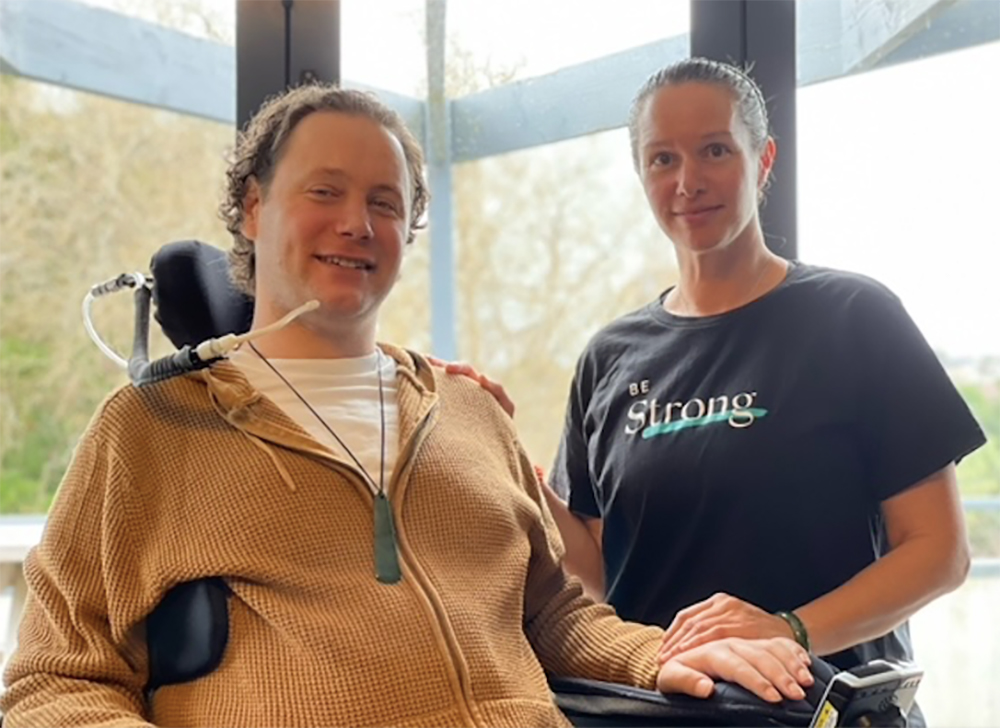
“It’s his personality that makes him, not his body,” says Susie.
With a desire to feel that he could still achieve in life, Brad turned to motivational speaking, which led him to writing his account of the accident and his rehabilitation with dogged determination. Each word of his 490-page book Owning It: The Ride That Changed My Life was painstakingly written on his phone using a mouth wand.
“My beliefs were all built around my physical prowess as a six-foot-two [1.88m] pro athlete and model,” recalls Brad. “Before my accident, life was all about travelling, wakeboarding and partying.
“For the first three years after the accident, I would fake it till I made it, being positive for everyone else, even though deep down I wasn’t. I had some dark thoughts, but now I have the tools to break them down and know these moments will pass.”
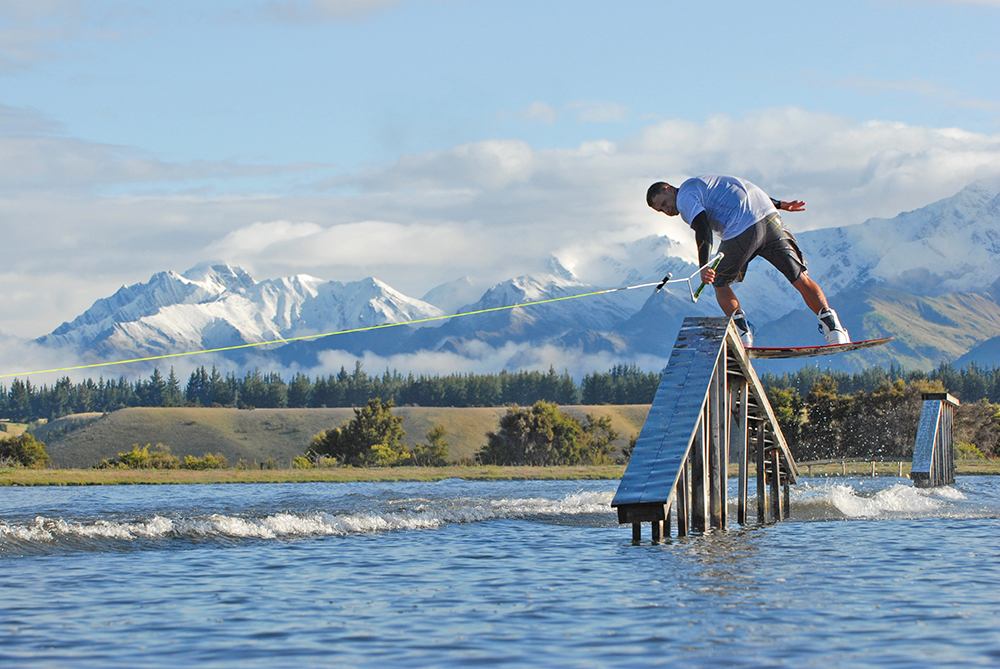
Brad in action in front of the Southern Alps.
He credits Susie for that transformation. Brad explains, “I was in the spinal unit and she said, ‘I believe you’re going to walk again. I’m here to help you through whatever sort of mental struggles that you might be going through.’ She was like a therapist – someone who would sit with me and ask, ‘Where’s your head today? What are you struggling with?'”
Brad had known Susie for many years and chuckles recalling how she’d let him attend her Pilates studio for free. “She said I was eye candy for the young mums!” He relished the attention, often doing his workout topless.
“He was referred to as Hot Brad,” laughs Susie, 47. “Who would’ve thought he’d have such a brilliant brain?! He’s discovered so much more about himself since the accident. The first two years were particularly challenging, but he’s really found himself in a much deeper manner than he would’ve if he’d just kept going wakeboarding with his functional body. And he has such good friends – one stopped working full-time to become his part-time carer.”
Brad counts Susie as one of his good friends too. “She hasn’t charged me a cent and she’s such a character,” he tells. “Susie’s really good at giving a different perspective on things. She’s helped me with feelings of inadequacy, and to see that this isn’t going to matter to someone who’s right for me and loves me.”
Susie adds, “Brad has let me in so deeply. It’s always beautiful seeing him because we’ve had to unpack and share so much. He loved his life, but he was so unaware of all those little things that actually make an incredible life, whether your body’s functioning or not. Now he’s very aware.”
Brad adds that he can see how far he’s come and tries not to look too far into the future. “I used to be 10% OK, 90% not OK, but recently I feel like I’ve just passed 50:50. It’s not getting any easier, but I’m getting better at it.”
Brad’s days are taken up with a revolving group of caregivers who wash, feed and turn Brad from side to side several times a day while he’s on bedrest – an infection means he can’t spend more than a few hours a day in his wheelchair. On special occasions, his friends will try to get him backstage at concerts or take him boating.
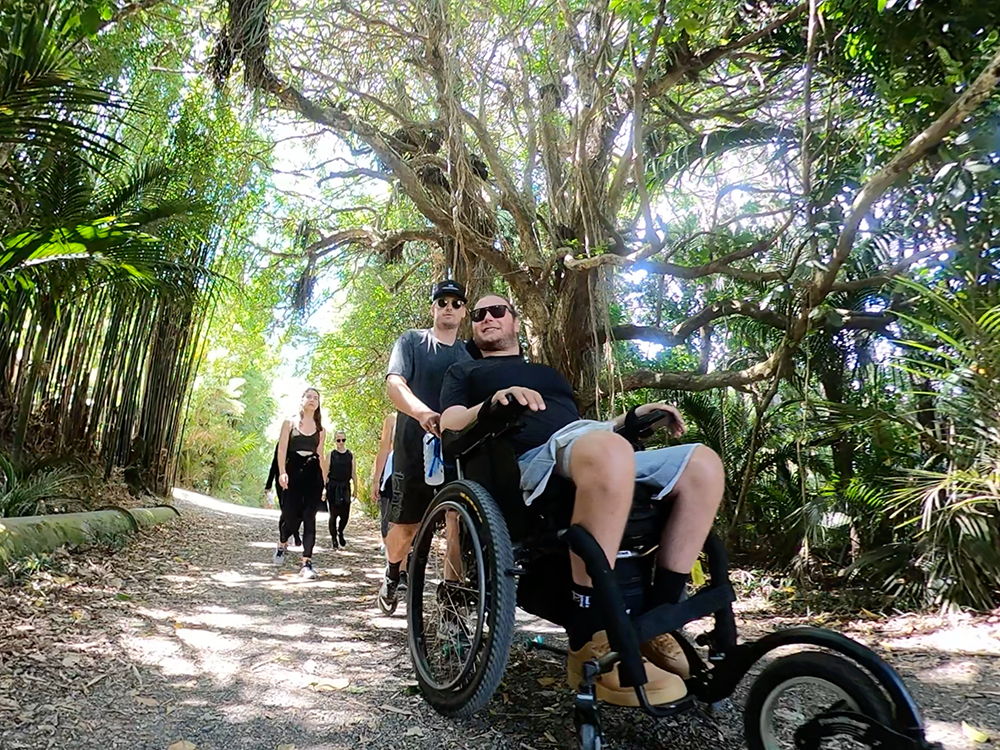
On a hike with friends in the Waitākere Ranges.
“My goal is to get regular speaking work and not rely on ACC payments,” says Brad, who lives with his younger brother. “I’ve also thought of another book as the content of this one meant it couldn’t be given out in schools. I’m very proud of what I’ve been able to achieve, the growth and the progress I’ve made, and where I’m at mentally now.”

